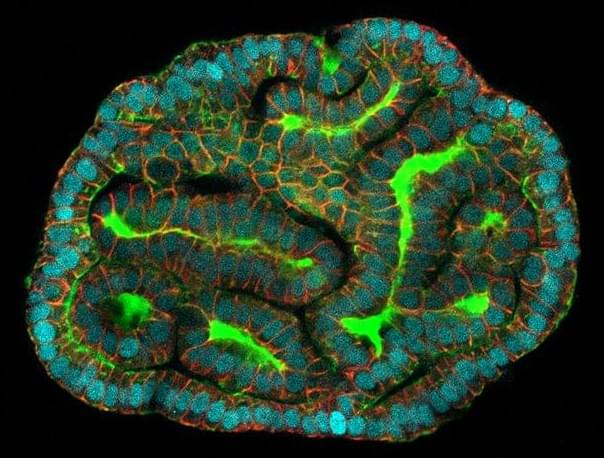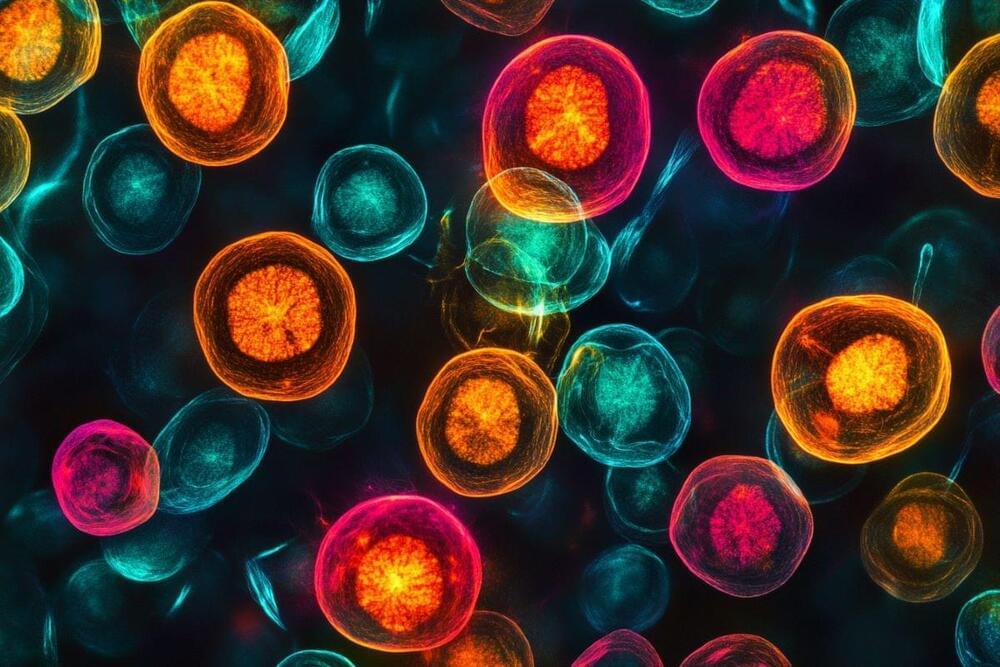Many experts are expecting big advance in quantum computing in 2025, but what is a quantum chip and how does it work?



A recent study highlights that significant health benefits and molecular adaptations from fasting are detectable after three days.
Recent findings show that prolonged fasting triggers significant and systematic changes across multiple organs in the body. These results highlight potential health benefits that extend beyond weight loss, but they also reveal that these impactful changes only begin to occur after three full days without food.
Health Benefits of Fasting Unveiled.

Beyond fermions and bosons: unveiling new particle behaviors in mechanics.
In the world, particles traditionally fall into two categories: fermions (like electrons) and bosons (like photons), each obeying distinct exchange rules. These “exchange statistics” shape the behaviors of particles, from the structure of atoms to the glow of lasers. In two dimensions, a peculiar third type, called anyons, has been theorized and observed, adding a twist to this framework. But could there be even more possibilities?
This study ventures into uncharted territory by revisiting “parastatistics,” an idea from theory that goes beyond fermions and bosons. Previously dismissed as merely theoretical and equivalent to the known particle types, parastatistics now emerges in a new light. The researchers reveal that particles obeying non-trivial parastatistics can exist in real physical systems and behave in fundamentally different ways. These “paraparticles” follow unique rules of exclusion, resulting in strange and exotic thermodynamic behaviors unlike any seen in fermions or bosons.
To bring this concept to life, the team developed a mathematical framework for paraparticles, showing how they naturally fit within the broader universe. They designed solvable models where paraparticles arise as quasiparticles—tiny, particle-like excitations in materials—observable through their distinct exchange behavior. Remarkably, these models work in both one and two dimensions, demonstrating the tangible potential of paraparticles in real-world systems.
The findings hint at exciting possibilities: a new class of quasiparticles in condensed matter physics and, perhaps more provocatively, the existence of elementary particles governed by entirely novel statistics. This discovery could expand our understanding of the world and open the door to unimagined phenomena in both theory and experiment.
Explore #quantum at Facebook.

Carl Sagan famously said, “We are made of star-stuff,” but even he didn’t realize just how far that star stuff traveled before it got to us.
New Hubble data has shown at least some of the carbon that now makes up our bodies may once have drifted hundreds of thousands of light-years out of the galaxy and back.
Elements heavier than helium are forged in the hearts of stars, eventually released into the cosmos when those stars explode as supernovae. These ingredients are then fed into the next generation of stars and planets.

Discover new technologies shaping 2025! NVIDIA’s Jetson Thor system is set to revolutionize humanoid robotics, while Meta’s Ray-Ban Stories smart glasses lead the wearable tech trend with over 1 million units sold. AI continues to transform industries with tools like ChatGPT. Don’t miss Unitree’s B2-W robot showcasing incredible stunts, speed, and heavy payload capabilities—available for purchase now!
📲 Follow us on social media @toborlife for updates, innovations, and exciting announcements!
💬 Have questions? Contact us at:
📧 [email protected].
📞 (408) 409‑4061
#RobotDogs #Humanoids #AIInnovation #FutureIsHere #TOBoRLife #robotdog #securitydog.
Don’t forget to like, comment, and subscribe for more amazing content from TOBoRLife! 🤖✨
World-leading humanoid robotics and artificial intelligence (AI) company Realbotix has announced it will unveil its latest robot, “Melody,” at this year’s Consumer Electronics Show (CES 2025).
Melody is, by all accounts, an open-source design that features functionality, adaptability, and user experience above beyond its previous offerings.
Realbotix, in case you are unaware, develops “customizable, full-bodied, human-like robots with AI integration that improve the human experience through connection, learning, and play.”
Join us on Patreon! https://www.patreon.com/MichaelLustgartenPhD
Discount Links/Affiliates:
Blood testing (where I get the majority of my labs): https://www.ultalabtests.com/partners/michaellustgarten.
At-Home Metabolomics: https://www.iollo.com?ref=michael-lustgarten.
Use Code: CONQUERAGING At Checkout.
Clearly Filtered Water Filter: https://get.aspr.app/SHoPY
Epigenetic, Telomere Testing: https://trudiagnostic.com/?irclickid=U-s3Ii2r7xyIU-LSYLyQdQ6…M0&irgwc=1
Use Code: CONQUERAGING
NAD+ Quantification: https://www.jinfiniti.com/intracellular-nad-test/

Summary: Researchers have developed an AI model that accurately predicts gene activity in any human cell, providing insights into cellular functions and disease mechanisms.
Trained on data from over 1.3 million cells, the model can predict gene expression in unseen cell types with high accuracy. It has already uncovered mechanisms driving a pediatric leukemia and may help explore the genome’s “dark matter,” where most cancer mutations occur.

Scientists at Brown University have discovered a new class of quantum particles known as fractional excitons, which exhibit both fermion and boson characteristics.
This groundbreaking finding could pave the way for new phases of matter and enhance quantum computing by providing unique ways to manipulate quantum states.
Novel Quantum Particles Discovered